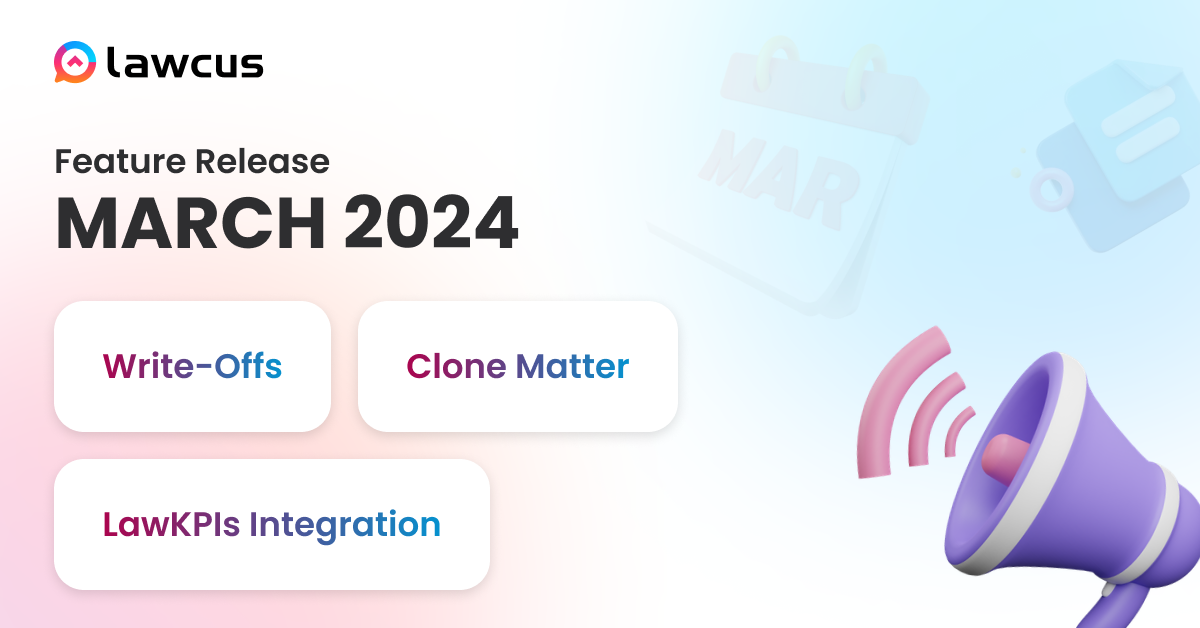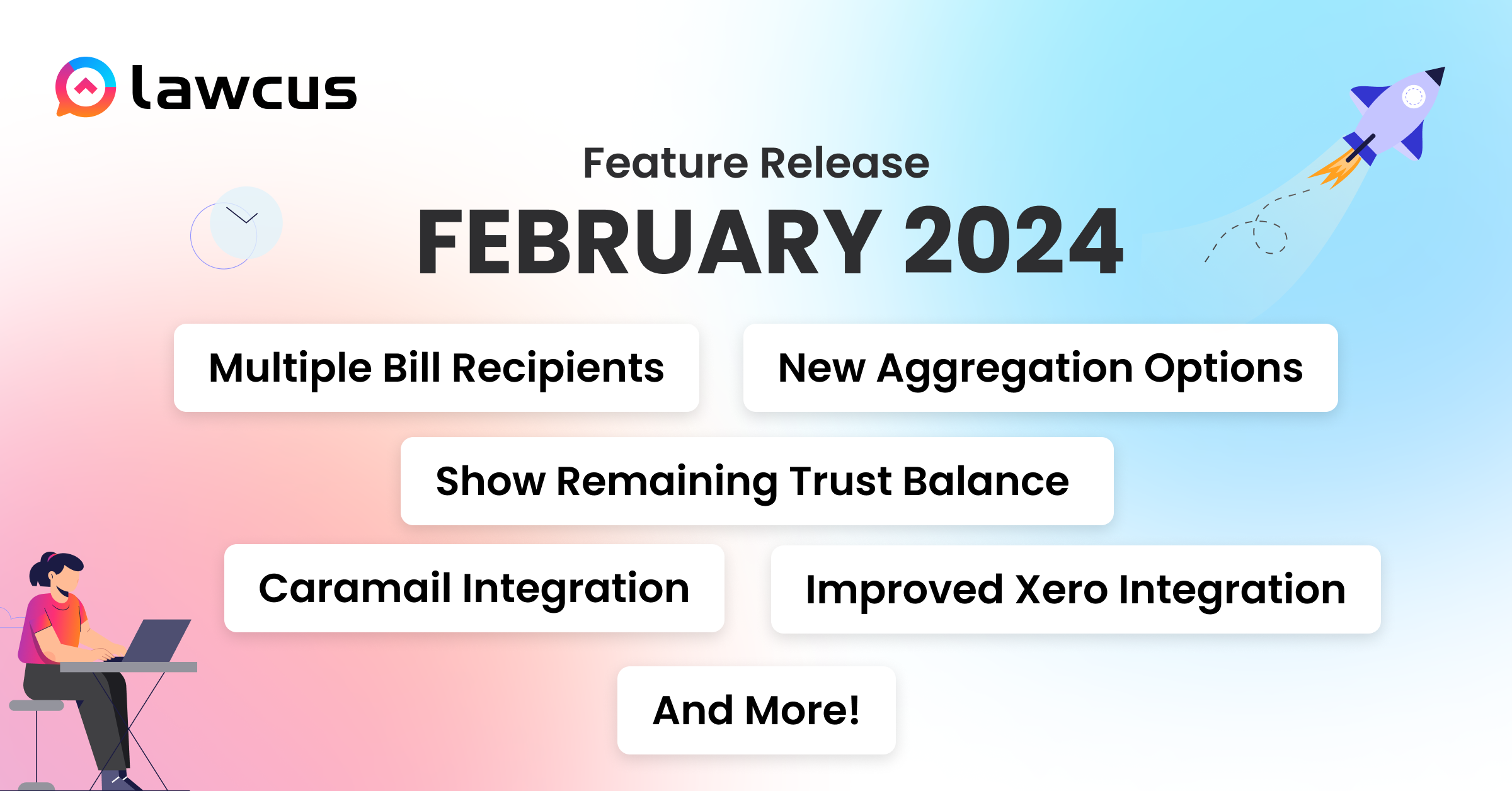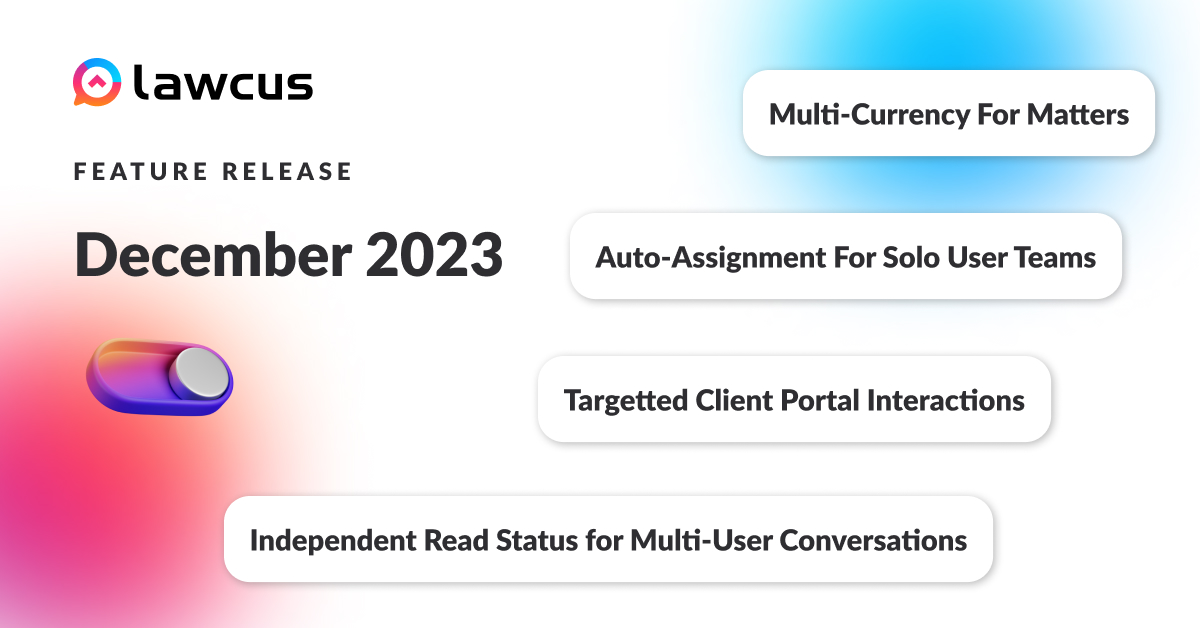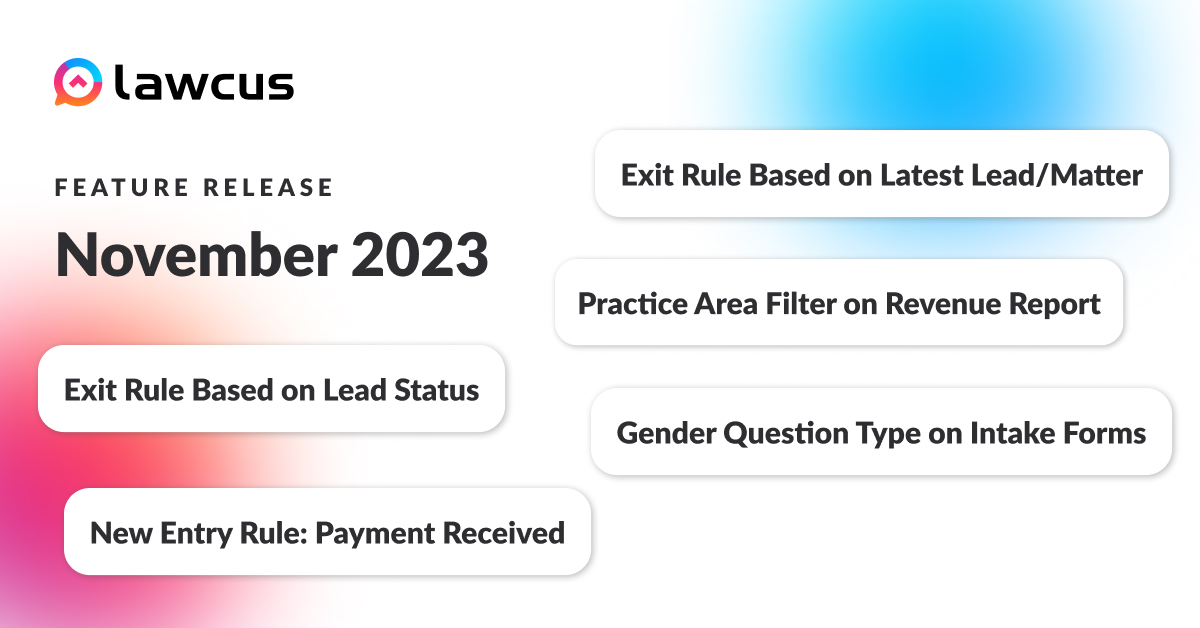
Feature Release: March 2024
After bringing you the best features in 2024 so far, we have now come to the end of the first quarter. Our team has been consistently striving to develop updates to enhance your productivity in the cloud. From streamlining workflow and billing to empowering users with greater flexibility and control, Lawcus remains committed to driving efficiency and success in legal practice management. Let’s delve into what we have in store for you for Lawcus’ March 2024 Update:
1. Write-Offs
Precision and accuracy in financial transactions are paramount, whether it’s rectifying a partially paid invoice or accommodating outstanding balances. Designed to empower legal businesses with greater control over their invoicing and collection processes, the feature offers a streamlined solution for handling invoice adjustments. Effortlessly address due settlements, apply credit notes, offer additional discounts, and manage outstanding balances precisely and easily.
From correcting overcharged invoices to applying negotiated discounts, we demonstrate how Lawcus empowers you to maintain financial integrity while streamlining your invoicing workflows.
Example 1: Writing off a Partially Paid Invoice
Suppose you invoiced a client for $11,000, of which only $10,000 has been paid, and you believe the client will not be able to pay the rest. You can write off the remaining $1,000, effectively reducing the amount owed on the invoice to $10,000. Your yearly financial records will reflect the total write-off amount for the entire year.
Example 2: Applying a Credit Note
Let’s say you invoiced a customer for $10,000 but agreed to give them a 15% discount. The customer pays $8,500, leaving a balance of $1,500 outstanding on the invoice. In this case, you can create a credit note for the remaining $1,500. Again, Lawcus allows you to apply this credit note to the invoice, effectively clearing the invoice. This ensures that your yearly financial records accurately reflect the discount given and the final amount paid by the customer.
Note: The write-offs or credit notes will only be available for the Lawcus Elite Plan in the future.
Read more about write-offs and credit notes here
Reports Affected
Accounts Receivable
Write-offs or credit notes directly affect the outstanding balances recorded in the accounts receivable.
For Example:
- When a portion of an invoice is written off, the amount is considered uncollectible or forgiven, thus reducing the overall outstanding balance.
- When a credit note is issued, it effectively reduces the amount the client owes, thus impacting the accounts receivable balance.
Invoice History
Write-offs or credit notes significantly influence the invoice history log. For Example: Each time a write-off or credit note is applied to an invoice, a transaction entry is created in the invoice history. This entry reflects the adjustment made to the invoice, including the reason for the adjustment and the updated invoice status.
Attorney Revenue Report
Write-offs or credit notes may affect the revenue generated by individual attorneys.
For Example:
- When a portion of an invoice is written off, it means that revenue is no longer expected to be collected. Therefore, it reduces the overall revenue attributed to the respective attorney.
- If a credit note is issued to correct an overcharge or to provide a discount, it will also affect the revenue attributed to the attorney accordingly.
2. Clone A Matter
Matter Cloning optimizes the way legal professionals manage their cases. With just a few clicks, you can create a new matter derived from an existing one, safeguarding against any duplication of events, tasks, documents, invoices, or activities.

- It eliminates the need to recreate the framework for each new case manually. Instead, you can leverage the existing structure as a foundation, allowing you to focus your energy on delivering exceptional legal services to your clients.
- You can choose which elements you want to replicate, including related contacts and custom fields from the original matter.
- Whether you’re a solo practitioner or part of a larger firm, this innovative feature replicates the structure of your matters effortlessly, saving valuable time and minimizing the risk of oversight.
Integration: LawKPIs
LawKPIs seamlessly integrates with Lawcus, providing automated reports based on Lawcus fields. Lawcus and LawKPIs empower you to visualize actionable insights, streamline operations, and confidently make informed decisions. This integrated solution doesn’t just manage data—it transforms it into tangible results, offering comprehensive analysis across all aspects, from case management to profitability assessment. With seamless performance tracking, legal professionals can effortlessly monitor productivity and efficiency in real time, eliminating the need for manual data entry and reporting hassles. By harnessing these comprehensive indicators, attorneys can fine-tune strategies, prioritize client needs, and nurture more robust relationships. This data-driven approach enhances client satisfaction and gives you a competitive edge in the legal landscape, fostering continuous improvement and driving innovation.


 Gmail
Gmail Microsoft 365
Microsoft 365 Zoom
Zoom Dropbox
Dropbox LawPay
LawPay Confido Legal
Confido Legal










